Going away this summer? With a little preparation, you can leave your garden for a week or two without worry. Follow these steps to help your garden survive your absence.
It can be difficult to leave your garden for a vacation or work travel. This is especially true if you have a vegetable garden or a kitchen garden. Imagine tomatoes ripening and summer squash about to enter the crazy growth season. Some gardeners just don’t take vacations in the summer.
A long weekend or a week with scattered showers predicted won’t be too hard on your plants. If you are planning to be away for two weeks or more during a hot, dry spell, it could mean disaster unless you take some extra steps.
Keeping the Garden Watered While Away
Water will be the most critical need while you are gone.
- A day or two before you leave, weed the garden to reduce competition for precious moisture.
- If there hasn’t been a heavy rain recently, water your plants deeply right before you leave, thoroughly soaking everything.
- Mulch to keep in moisture and cool the soil! Shredded leaves, grass clippings, straw, and pine needles are all good natural mulch materials that will allow rainfall to pass through while blocking new weeds from growing while you are away. You want the soil to stay damp for as long as possible.
- Place large stones or planks of wood between the rows of vegetables. The idea is to ensure the soil beneath remains damp for as long as possible. Don’t use plastic, as you want any rain that does fall to soak in.
- If you have them, place those soaker hoses and drip irrigation on a timer. This is a wonderful, water-thrifty way to water your garden. Preferably, you would have laid them down before planting, but with care, they can be threaded through the beds between the plants to deliver water to the root zone where it is needed.
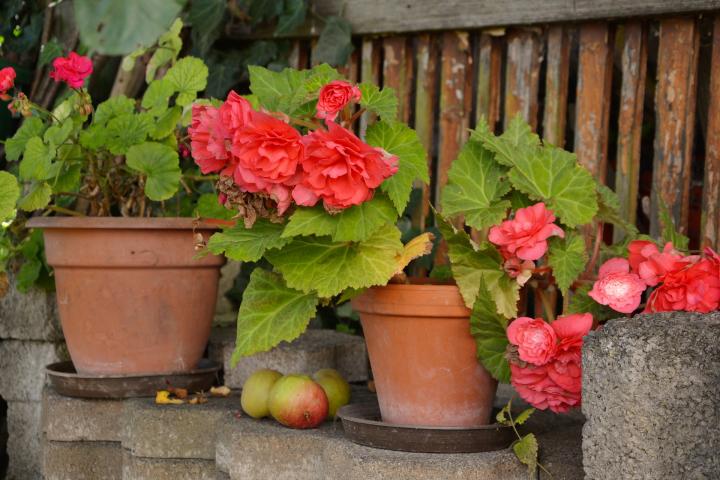
Watering Containers and Pots
- Containers dry out fast. Group your pots together in a semi-shady part of the garden, soak them, mulch any exposed soil in them, and place drip emitters in each pot if you have them.
- Sink clay pots up to their rims in moist soil or in a pile of damp wood chips to keep them from losing moisture through their sides.
- Try placing water spikes or glass water globes into the soil. Any long-necked bottle can be filled with water, turned upside down, and pushed into the soil, where it will slowly leak out water. Self-watering pots are great. They have large reservoirs that slowly wick water to the plants. It’s a good idea to try this out in the week before you go to see if the water lasts as long as you’d like and if very thirsty plants, like tomatoes, still tend to wilt. Increase the water available, if necessary, by adding more or larger bottles.
If none of this works for you, you will need someone to check on your containers and water them daily.
Vacation Garden Care
A little preventative garden maintenance will go a long way in keeping your garden healthy in your absence. Give the garden a checkup before you leave and take care of any problems while they are small.
- Group your pots together.
- Along with weeding, deadhead all bedding plants and remove diseased foliage. If you are going away for two to three weeks, you could also remove all fully open flowers and deadhead.
- Do some edging on the garden beds if you have time.
- Deal with any bugs you find to keep them from gaining the upper hand while you are away.
- Stake up any plants that may outgrow their supports before you get home, even if they seem small now.
- Shade lettuce and other leafy greens that don’t like direct sun.
- Pinch flowers off herb plants to encourage new growth.
- Don’t fertilize right before leaving; wait until you get back.
- Mow the lawn a day or two before you go, so it looks tidy while you are away. Set the blades up high if the weather is hot and/or dry, so the grass stays green instead of turning yellow.
Keep an eye on the long-range forecast. Will it be cloudy and wet or sunny and dry while you are away? Plan accordingly.
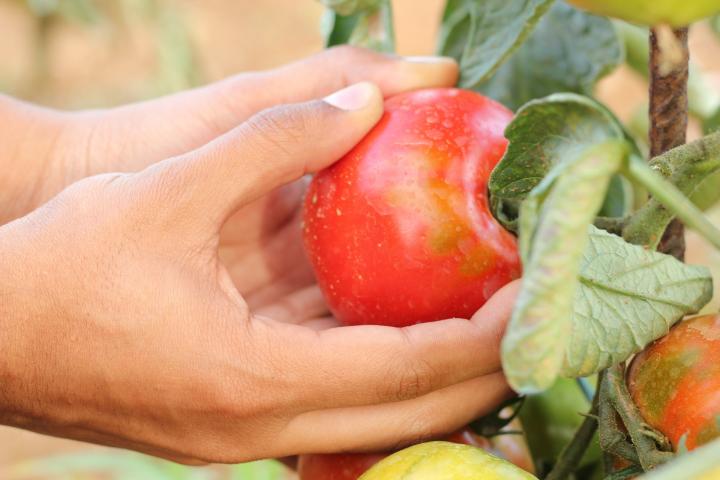
Harvest and Pick Early
- Pick any vegetables that are close to harvestable size. A small zucchini will be as thick as your thigh if you are gone for a week or more. Peas and green beans will stop producing once they develop a large seed. Runner beans will grow big and tough if left too long before leaving.
- Anything that can ripen off the plant, such as tomatoes, can be picked early as well (strawberries will ripen in the fridge).
- The crops that you’re most likely to lose are the green leafy ones, such as lettuce, cress and oriental salads; you can slow up their tendency to run to seed by erecting shade protection.
- For longer absences, definitely remove all young beans, immature peas, and baby zucchini; if these mature on the vine, the plant will stop fruiting.
See our guide on when to harvest vegetables and fruit.
Thinking A Season Ahead
- As mentioned above: Consider installing a drip irrigation and a timer. This is the easiest way to stress less about watering when you’re gone.
- When you start your plants in the spring, always water deeply (versus frequently) to establish. This encourages plants to send roots deeper and means they’ll cope better for periods without water than those whose roots are near the surface because they’ve always been lightly watered.
Houseplants
Got indoor plants? Move them to shady rooms. The large plants should survive. Small pots are best stood on damp towels in the kitchen sink or even in the bath, but water them well. As soon as you get back, put the pots back in their usual positions and water deeply.
Find a Friend
To ensure that you won’t come home to a disaster, you can always hire a garden sitter. Ask a gardening friend if they will keep an eye on things while you are away in exchange for vegetables and flowers. Don’t turn off your water if you expect them to help water! Leave watering cans and garden hoses accessible.
Don’t be upset with your friend if any plants die; they will not understand your garden the same way that you do, and it may have been unavoidable.
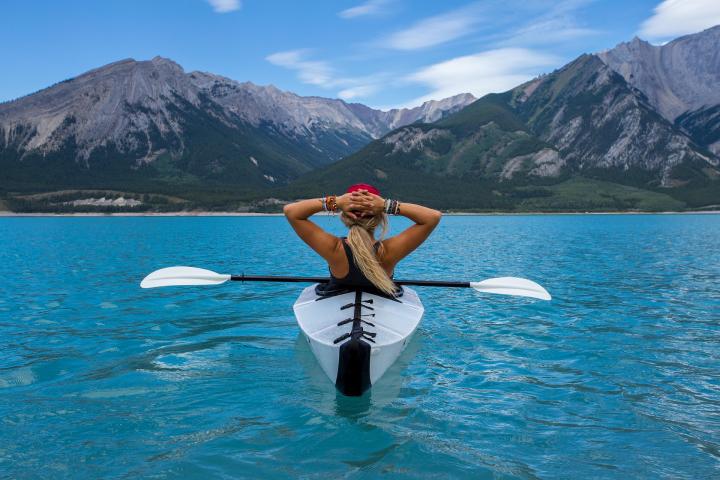
Happy vacationing!





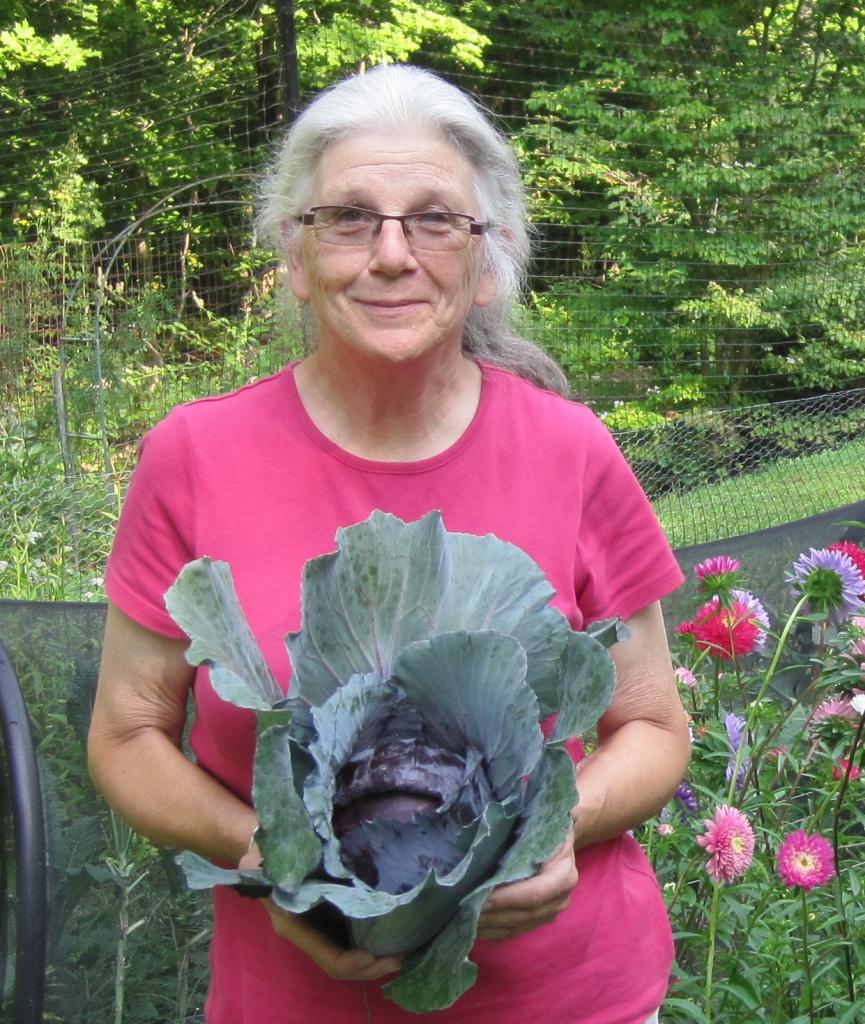



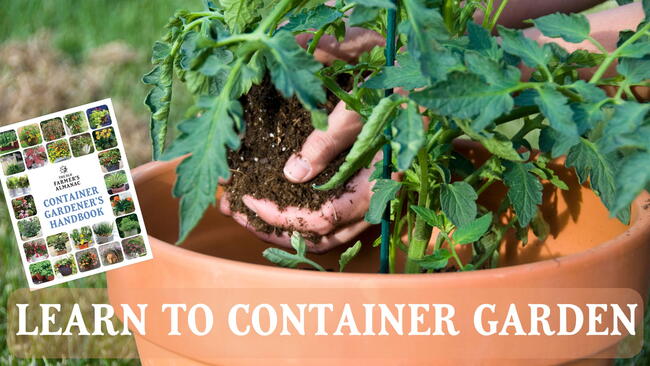




Comments